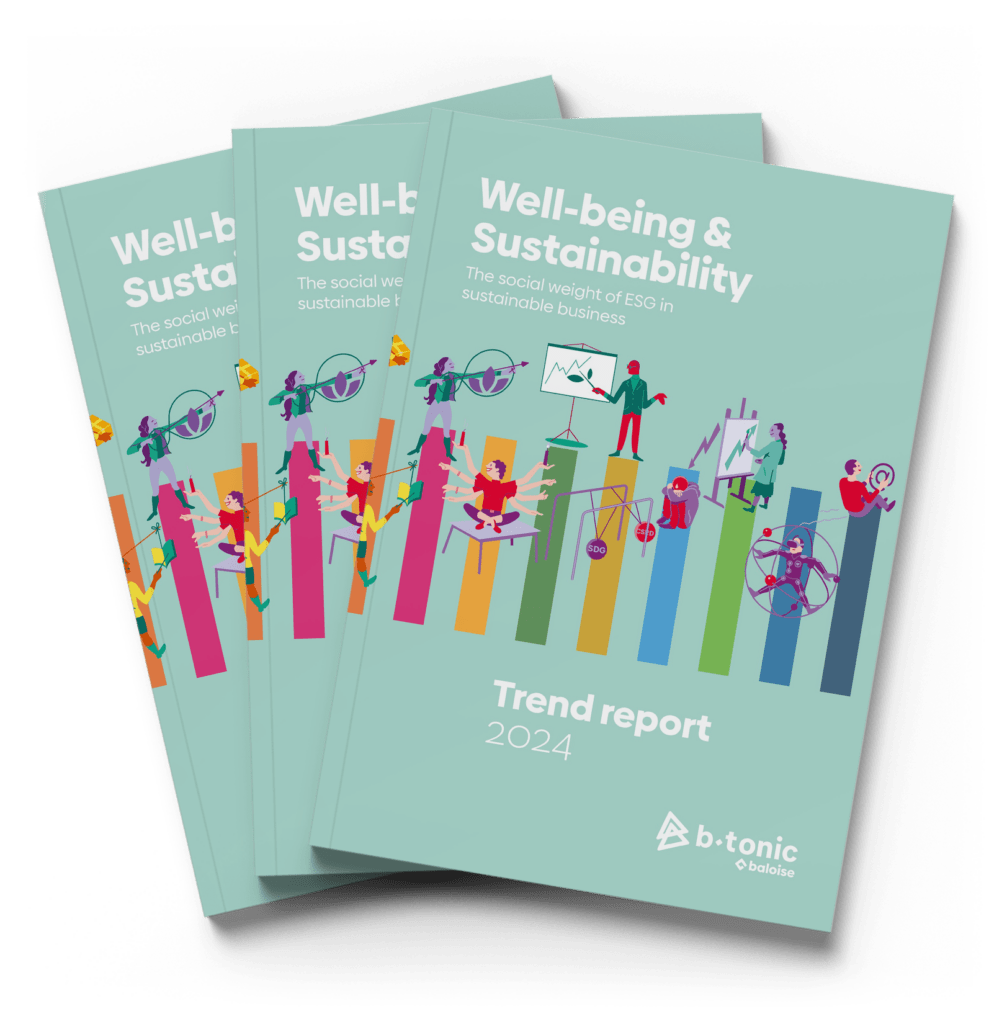Frequently asked questions
B-Tonic is an initiative of Baloise. Why? Simple. Because we do not want to be just an insurance company, but a well-being company as well. A solid and sustainable approach to well-being helps entrepreneurs improve the physical, social and mental health of their employees. Well-being, the lever for more motivation, connectivity and productivity, for a sustainable change at work. B-Tonic is not an insurance company, but a subsidiary of Baloise. Together we help organisations improve well-being at work.
By means of various company scans and self tests for employees, we identify the risks and needs of your company. Then, we can compose the right support tailored to you. Because not each employee has the exact same needs. We tackle well-being in relation to current and individual needs, which enhances the impact your company has.
Starting up a well-being policy for your company with no clear communication towards your employees has no or very little impact. B-Tonic unburdens you by means of a clear ‘HR Toolkit’ with online and offline activation campaigns. In doing so, we support you in the communication towards your employees and together we focus on maximum involvement and commitment. Because communication remains crucial for a sustainable involvement, especially when it comes to launching new initiatives.
The ready-made online modular learning platform is the one stop shop to inform and motivate your employees about well-being at work. It is user-friendly, 24/7/365 available and compatible with desktop, tablet and smartphone. Our wide variety of science-based topics, coaches, activities and learning sessions, both online, offline and hybrid, can be used as building blocks for everyone’s personalised programme. We configure, combine, and select the components that fit your plan and budget and as a result, we arrive at the perfect programme tailored to your company, team or even individual employee.
Our Wellbeing Assistants are the driving force behind our platform. We are the point of contact while configuring your sustainable well-being policy on the platform. From strategy to approach: our Wellbeing Assistants support your company from a to z.
The Wellbeing Assistance platform is the central cockpit of the well-being policy of your company. On the basis of involvement, participation and satisfaction we guarantee constant metrics and detailed reports in a well-organised dashboard. Thus, the ROI of each initiative can be easily identified and you get a clear overview of the general well-being level of your employees through consolidated data, which allows you to keep your finger on the pulse of your company.
Thanks to partnerships with among others Antwerp Management School, we consistently invest in scientific research. Which allows us to know what’s really going on at work and to improve employee commitment. Through our collaboration with recognised partners, we go for a multidisciplinary approach with a manageable methodology, far away from ad hoc initiatives.
SDGs stands for Sustainable Development Goals. On 25 September 2015, 193 member states signed the ‘Agenda 2030 for Sustainable Development’ and embedded the world’s most important societal challenges in a plan of action with 17 sustainability goals, the so-called Sustainable Development Goals (SDGs) and 169 subgoals. Together they are the cornerstone to eliminate poverty by 2030, tackle inequality and protect world peace. And thus ensure your company or organisation’s future.
The 10 Good work goals follow the UN stance that good work is a crucial condition for achieving many of the Sustainable Development Goals. With the 10 Good work goals we advise companies in creating working environments that value good employees and support good societies. We carry out the message that focusing on the human being is essential for the health of the economy, society and environment. The goals emphasise that ensuring good working environments is a big responsibility, not just in times of stability and wealth, but also in times of crisis and recuperation.
The Good life goals focus on the individual to achieve the ambitions of the SDGs. In the same vein of the Good work goals functioning as a global translation of the SDGs for the corporate world, international business made a translation of the SDGs for the individual act.
The ESG is a rating that companies receive for sustainability on the basis of the company value for investors. In other words, sustainability is a factor that determines to a large extent whether or not they invest money in a company. ESG stands for Environmental, Social and Governance. In plain language: make sure that your company contributes to the environment and operates in an environmentally friendly manner (Environment), that you treat your human capital with care (Social) and that you manage your organisation in a decent manner (Governance).
B-Tonic is a registered service provider for the SME e-wallet for advice and education.
In concrete terms, what does this mean?
The Flemish Government pays up to 30% of your advice or education. The application is fully online. In order to redeem this subsidy, you need to register and deposit a specific amount in your SME e-wallet through this link. Do you have practical questions about this? Call the number 1700 for free.
B-Tonic is a registered service providor of the SME e-wallet, the workability cheque and includes the quality registration label WSE.
Registration numbers B-Tonic DV.A243403 – DV.O243402 – KDB000001929.



